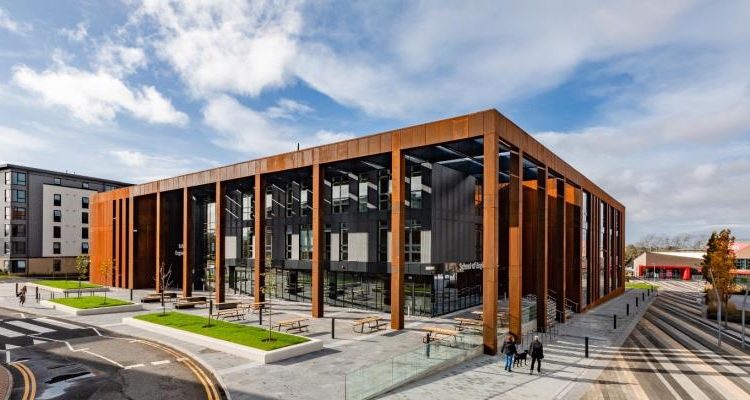
The University of the West of England in Bristol has officially opened its new state-of-the-art School of Engineering building.
The four-storey building, which boasts some 8,500 square metres of floor space, features teaching studios, modelling and simulation suites, laboratories, specialist workshops and student learning zones. Equipped with the latest digital technology, including engine test cells, driving and flight simulators, a virtual and augmented reality cave, and ‘smart factory’ testing facilities, the building accommodates a wide range of engineering disciplines, from composite manufacturing and machining to metrology.
Completed in 2020, the striking multi-million-pound facility on the university’s Frenchay campus has already been named Project of the Year at the British Construction Industry Awards, the judges praising its intelligent and sustainable design.
Planning and design work was carried out in tandem with a renewal of the university’s engineering curriculum, drawn up in collaboration with industry to ensure that engineering graduates are equipped with the skills and knowledge that they require to succeed. Relocation to the spacious new site has enabled the university to expand student numbers to 1,600, which will help to address the rise in demand for skilled engineers in the region, particularly in the booming aerospace sector.
‘With our fantastic new contemporary building, fit for the 21st century and the digital era, we now have one of the top engineering facilities in the South West and one that will attract and inspire the engineers of the future,’ said Tod Burton, executive dean for the Faculty of Environment and Technology. ‘It has already been completely transformative for our students and staff, offering different and more flexible ways of teaching, learning and working. We are immensely proud of the new facility and feedback from our students has been resoundingly positive.’
‘Moving to our wonderful new building with its complementary practise-based curriculum has signalled a real cultural shift,’ said Professor Lisa Brodie, head of the Department of Engineering Design and Mathematics. ‘[Our students] are studying during traditional working hours, learning in spaces that closely resemble actual engineering workplaces and use the same specialist equipment as professional engineers. We are placing an enhanced focus on problem solving, trialling and testing, because it is beneficial for students to try and fail as it builds resilience, creativity and innovation.
‘With the principles we are instilling in our students, we are ensuring they are world-ready from day one on graduation and possess transferable skills for the jobs of the future – jobs that perhaps don’t even exist yet,’ she continued. ‘Already, employers are telling us they would like to recruit their graduates from UWE Bristol as they know they will be employable when they have completed their studies.’



